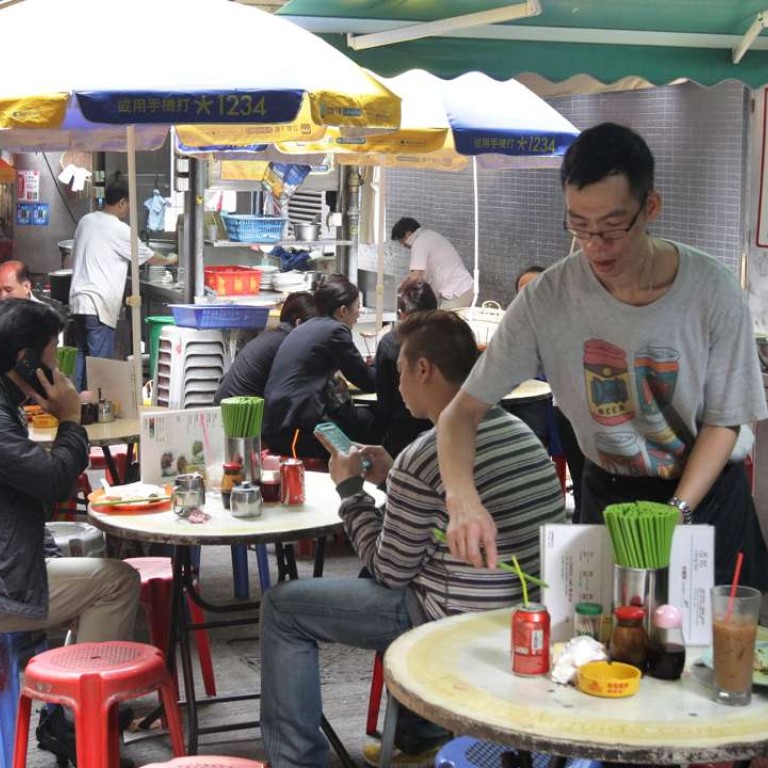
Hong Kong should relax its rules on hawker licences to help the poor
Philip Yeung says by denying the poor and unskilled such opportunities, our unfeeling officials have clearly forgotten what it is like to live and let live
There is a woman out there that the government does not see. Middle-aged, widowed and unskilled, she has been fighting for the past 18 months to inherit the shoeshine licence of her deceased husband whom she once assisted. With this licence, she could earn up to HK$8,000 a month to feed herself and her injured son. But the Food and Environmental Hygiene Department says no. It has an iron rule that shoeshine licences cannot be inherited or transferred.
It never ceases to amaze me what life-denying rules bureaucrats dream up. It is this kind of ossified thinking that has created the red tape to squeeze the life out of the city’s once vibrant indigenous culture.
Dai pai dong an endangered species in Hong Kong
I remember a time when there were over 3,000 dai pai dong in our city, much loved by residents and tourists alike. This same department has slapped the same no-inheritance rule on our iconic curbside eateries. Today, they have dwindled to just 25 in the entire city. With a lack of competition, and people yearning for a taste of old Hong Kong, some of the surviving greasy spoons now command menu prices that are the envy of regular restaurants.
Insulated from the hardscrabble existence of the working poor, bureaucrats are insensitive to their plight. They are well-cushioned by generous education and housing allowances and an inflation-adjusted pension. To them, the poor are invisible.
In at least this aspect, even second- or third-tier mainland cities put us to shame. There, they allow itinerant hawkers to peddle their wares on pavements and in backstreets, especially around wet markets. The poor manage to eke out a living. The customers are happy, too. This is the live-and-let-live principle that our functionaries seem to have forgotten.
Closing time: How Hong Kong’s hawkers face a struggle to survive

Street hawkers vs food trucks: Hong Kong loses out again
There are only two escape routes from poverty: education or entrepreneurship. The poor have been priced out of both. In this ultra-expensive city, who can afford regular store rent?
This divided city needs a dose of humanity. Hong Kong civil servants were once praised for their good governance practices. What has happened to that fine tradition? A good government sees the poor. Issuing hawker licences gives them a chance of survival.
Philip Yeung is a former speechwriter to the president of Hong Kong University of Science and Technology. [email protected]

